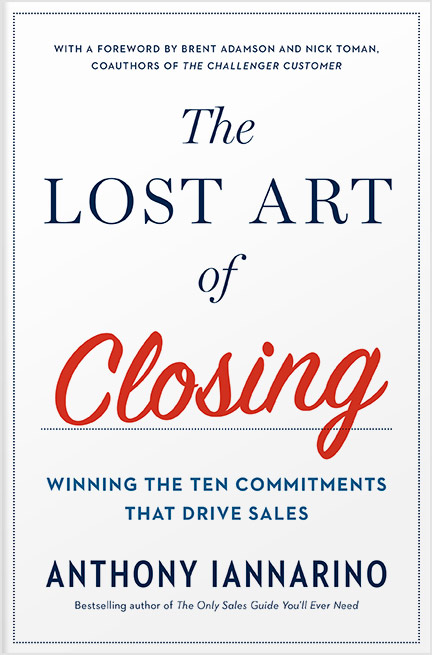The Gist:
- The “cold call” has been under attack since the advent of social media tools.
- Many mistakenly believe the medium is the problem and even the main source of customer complaints.
- The medium is never the problem; the approach is to blame for poor results.
Merrill Lynch Wealth Management found themselves in the news recently, after announcing that they would no longer allow their sales force to make cold calls. Without providing any information about the problem it was causing Merrill Lynch, the article hinted that the sales reps’ behavior was what caused the change. Not only is abolishing cold calls a bad idea for any sales organization, but Merrill Lynch’s new approach—connecting with people on LinkedIn and asking for referrals—isn’t likely to help them acquire the clients they need to reach their goals.
Whenever something like this happens, I keep a record of my predictions. Most of the time, my predictions are wrong because I am too conservative. Not this time: I predict that Merrill Lynch will find many of their salespeople walking across the street to their competitors, where they will be allowed to grow their skills and their business.


A Defense of the Cold Call
Ladies and gentlemen of the jury, please direct your attention to Exhibit A: the connect-and-pitch approach to prospecting. Each of you have had the experience of accepting a LinkedIn connection only to be assaulted by a five-paragraph, self-oriented rambling about why you should hire the person’s company to “build your mobile app,” “generate meetings for you,” or provide you with “transcription services.”
Still, you stay on the LinkedIn platform, finding it valuable in spite of the growing number of companies who are willing to automate spam there. After all, many of you have acquired genuine clients through LinkedIn. You have to decide whether to blame the platform, one you find valuable, or the way it is being used.
That brings us to Exhibit B: The self-oriented, why-us email. Every day, each of you open your work inbox to find emails from complete strangers requesting a meeting with you (and I don’t mean the bizarre ones in your spam folder). Many of the emails have nothing to do with your role or any area where you would be involved in a purchasing decision. The authors, it seems, are targeting an industry vertical, with no consideration of role.
Under the prosecution’s theory, email should be banned from the sales floor because some people use it badly. But is the medium really to blame for the terrible emails you receive? Like LinkedIn, the platform allows these practices to exist. Before you decide, think about whether or not you would want to do without email as a tool to communicate with your clients.
Your Honor, if it please the court, the defense enters into evidence Exhibit C: a fully automated prospecting sequence using a brute force approach to a meeting. This one is a little difficult to follow, ladies and gentlemen of the jury. Marketers have written a series of emails to replace human outreach. You receive an email with a number of alluring (or at least mildly diverting) links that might cause you to click, indicating your interest. In that case, the deranged individual on the other end instantly pronounces you a marketing-qualified lead. Should you delete the email instead, you’ll get another one soon enough, with every email in the sequence quoted below it “in case you missed this.” So far, no one knows just how long the chain can go.
There are many good ways to use automation in a prospecting sequence, but this isn’t one of them. Eliminating automation based on this one excess would mean ending the meeting reminders that Outlook generates and sends to your clients. Once again, my esteemed and observant jurors, you can’t help but recognize that the medium is innocent. The individual using the bad approach is the real culprit here.
Finally, ladies and gentlemen of the jury, and Your Honor, cast your eyes upon Exhibit D: a live sales presentation that only answers the question “why buy from us?” This hapless salesperson never addresses the client’s current challenges, their future, or how they intend to help improve their client’s results. Is the fact that the salesperson is standing in their client’s conference room the problem, or is it their no-value, legacy approach to selling?


My Closing Argument
You have to decide whether the medium itself is to blame for the bad behaviors that caused Merrill Lynch to eliminate the cold call. But what else might be at fault? The answer is simple: the company’s sales leaders have permitted and even encouraged an outdated legacy sales approach, enabling bad practices on the sales floor for far too long.
Deciding to remove the cold call as a tool for communicating with a prospective client suggests that all the bad behaviors prompting all those customer complaints cannot and will not simply switch mediums to email, social media, or some other venue. But the fact is, every available medium can be used professionally and effectively—and all of them can be abused by those who choose to employ ineffective or unprofessional approaches. Salespeople who value relationships respect their clients, their prospects, and the tools at their disposal, so they avoid using them in ways that cause people to complain. Those who believe clients are means to an end use those tools (and their clients, if we’re honest) in horrible ways, ways that harm the profession of sales.
I ask you to find that my client, the cold call, is innocent of all charges and must be reinstated.
Do Good Work:
- What causes an approach to repel a prospective client and prevent them to agree to a meeting?
- Why do some people produce better results than others when using the telephone to reach prospects?
- What advantage does a company have against a competitor that isn’t allowed to use the telephone?

Get the Free eBook!
Want to master cold calling? Download my free eBook!
Many would have you believe that cold calling is dead, but the successful have no fear of the phone; they use it to outproduce their competitors.
Download Now










